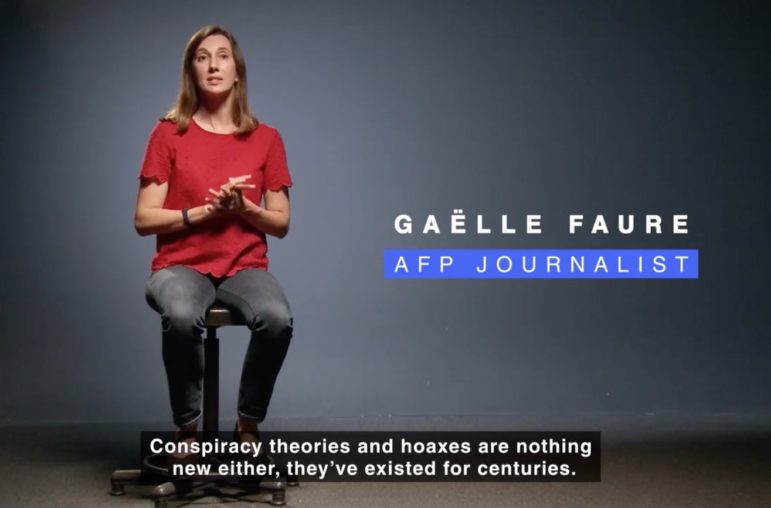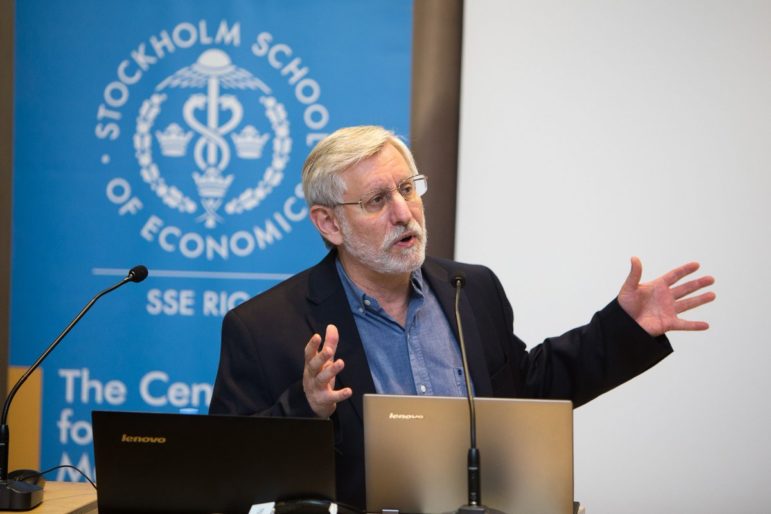

The Friday 5: What Investigative Journalists Are Reading This Week

Photo: Unsplash
Each day, GIJN editors scan the online world for the latest news on investigative and data journalism, reports and analysis on sustainability and innovation in journalism, as well as tips and tools which support the craft. We put these out across our social media channels in eight languages. Our new series rounds up five of our favorites from each week in English. Here’s what we’re reading:
Glenn Greenwald Charged With Cybercrimes in Brazil (New York Times)
Prosecutors in Brazil charged American journalist Glenn Greenwald with cybercrimes this week, accusing him being part of a “criminal organization” that hacked into the cellphones of several prosecutors and other public officials last year. The Intercept Brasil, which Greenwald co-founded, published articles last year based on leaked cellphone messages that raised questions about the integrity and the motives of key members of Brazil’s justice system. (Read GIJN’s profile of The Intercept Brasil here.) Edward Snowden, who leaked the National Security Agency (NSA) files to Greenwald and others in 2013, joined the outrage of the press freedom community on Twitter saying the charges pose an “existential threat to investigative journalism in Brazil.”
Fighting Words: Journalism Under Assault in Central and Eastern Europe (Reuters Institute)
Last week in Slovakia, a man accused of being a hired assassin pleaded guilty to the March 2018 murder of investigative journalist Ján Kuciak and his fiancée Martina Kušnírová, underscoring the importance of the Reuters Institute report released this week. Meera Selva surveyed journalists in 16 countries in the region about the state of press freedom and the ways their work was being curtailed. The journalists highlighted attacks from politicians who discredit individual journalists and media outlets, launch vexatious lawsuits, and weaponize government advertising revenue to harm critical media and financially boost friendly outlets. Other issues addressed were media capture, rising job insecurity, and an increasingly polarized media landscape.
Intro to OSINT (OSINT)
The cool kids over at OSINTCurio.us made this very cool video tutorial which lines up some of the basics around OSINT. It’s a great crash course for those who want to up their open source intelligence game, but it also includes interesting tips for those who have a bit more experience. The brief tutorial highlights everything from people searches to frameworks and flowcharts, to the best ways to save your data. Well worth the 25-minute investment.
Luanda Leaks: Collaborating to Investigate Africa’s Richest Woman (ICIJ)
The ICIJ-powered Luanda Leaks investigation shows how Isabel dos Santos became Africa’s richest woman, reported with the help of over 715,000 documents initially obtained by the Platform to Protect Whistleblowers in Africa. The financial and business records shows how she moved hundreds of millions of dollars in public money out of Angola into a labyrinth of companies and subsidiaries — many of them in secret offshore tax havens around the world — with the aid of Western financial firms, lawyers, accountants, and officials. Over some eight months, 120 journalists from ICIJ and 36 media organizations in 20 countries pursued leads in the documents and plumbed their significance.
Is This Video “Missing Context,” “Transformed,” or “Edited”? Standardizing How We Categorize Visual Misinformation (Nieman Lab)
A new initiative is attempting to define the structure of the visual fact-check, labeling images or videos as “authentic,” “missing context,” “cropped,” “transformed,” “edited,” or “image macro,” and offering up definitions for each. MediaReview, a project from the Duke Reporters’ Lab’s Bill Adair and Joel Luther, builds on this excellent guide from The Washington Post’s fact-checking team on manipulated video, which breaks down altered footage into three categories: taken out of context, deceptively edited, and deliberately altered. Efforts like these aim to help with navigating online misinformation and disinformation and start some needed conversations for the coming onslaught. You can suggest changes or improvements in this Google Doc.
 Tanya Pampalone, GIJN’s managing editor, rounded up this week’s Friday 5. The former executive editor of South Africa’s Mail & Guardian and former managing editor of Maverick (now Daily Maverick), Tanya co-edited I Want To Go Home Forever: Stories of Becoming and Belonging in South Africa’s Great Metropolis (Wits Press, 2018), a collection of stories on migrancy and xenophobia, and contributed to Southern African Muckraking: 150 Years of Investigative Journalism Which Has Shaped the Region (Jacana, 2018) as well as Unbias the News: Why Diversity Matters for Journalism (Hostwriter, 2019).
Tanya Pampalone, GIJN’s managing editor, rounded up this week’s Friday 5. The former executive editor of South Africa’s Mail & Guardian and former managing editor of Maverick (now Daily Maverick), Tanya co-edited I Want To Go Home Forever: Stories of Becoming and Belonging in South Africa’s Great Metropolis (Wits Press, 2018), a collection of stories on migrancy and xenophobia, and contributed to Southern African Muckraking: 150 Years of Investigative Journalism Which Has Shaped the Region (Jacana, 2018) as well as Unbias the News: Why Diversity Matters for Journalism (Hostwriter, 2019).









